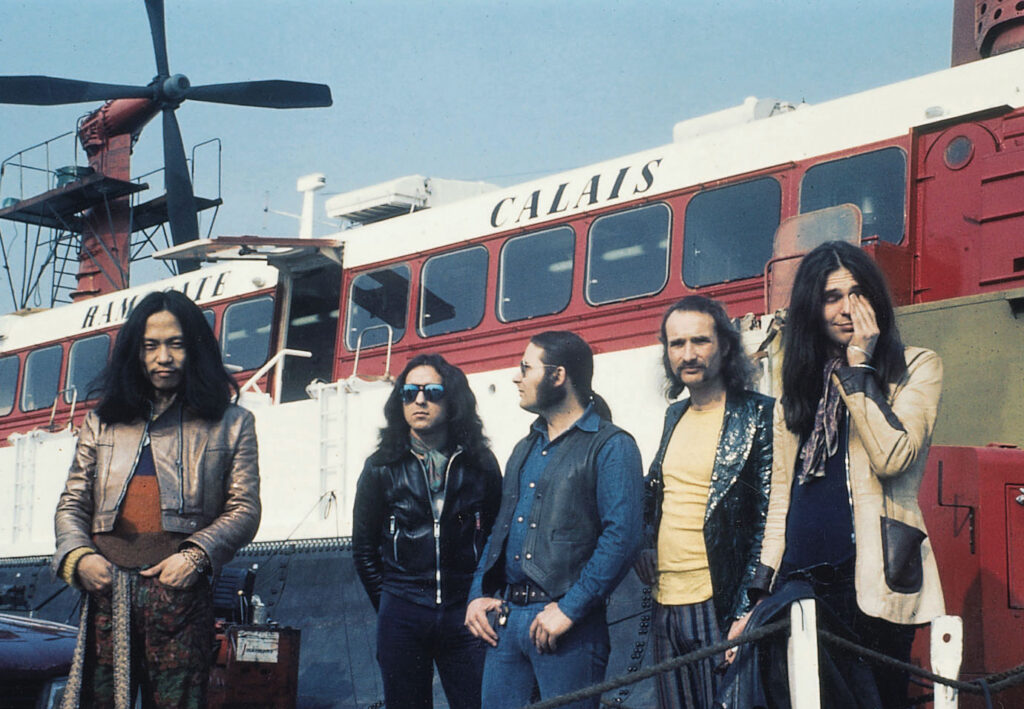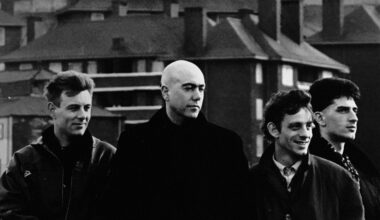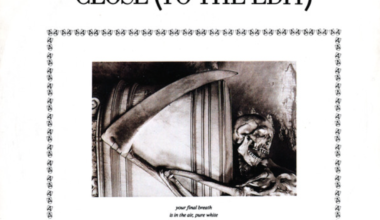Can’s Irmin Schmidt reflects on the making of ‘SPOON’, the game-changing single from ‘Ege Bamyasi’

“We’d already made music for a number of films for the WDR TV station in Cologne. These were so successful they commissioned us to soundtrack a series of three films called ‘Das Messer’ [‘The Knife’], a very commercial detective show based on the work of English author Francis Durbridge. So that’s where the name of the track came from. The production company made a big promotional buzz about who the murderer was. We had to sign a contract to promise that we wouldn’t disclose it.
“One day my car was broken into and my cassette recorder was stolen. We thought this was an amazing opportunity, so we told the media that the tape we left in the recorder contained the identity of the murderer… which meant the thief could have known who the murderer was. This made a big story for the papers.
“When we gave the final tape to the film’s director he went crazy. He said, ‘That’s not what I expected! I made a commercial film. This isn’t commercial enough. It’s some fucking avant-garde shit. I don’t want it on my film’.
So we had a big meeting with the production team and finally the producer Günter Rohrbach, who went on to produce ‘Das Boot’, stood up for us. He said, ‘Actually, I love it. It’s different from the usual schlager shit’. He told the director, ‘If you want to withdraw your name from the film, do it, but we’re leaving the music in’. It’s ironic really, because in the end ‘Spoon’ was the only thing that was commercially successful about the film. It sold over 300,000 copies and made number six in the German singles chart.
“‘Spoon’ was the first production in our new studio in an old abandoned cinema in Weilerswist. It was like a building site really. When we arrived in Weilerswist we looked quite strange with our long hair, people were very mistrustful of us, but once ‘Spoon’ was a hit that all changed. Suddenly we were really respected. They were really proud to have us in their little village.
“When a journalist came to interview the locals he was disappointed because he thought they’d be disparaging and say that we tried to seduce their daughters, but instead they said, ‘Oh yeah, these guys are great. They’re always working hard. They’ve built their own studio, they’ve paid the carpenter and everything’.
“We were just about to start nailing mattresses to the walls and installing our studio when we got the commission to produce the track. ‘Spoon’ was the first time we used one of these ridiculous rhythm boxes from the late 60s. It had all these rhythms like ‘beguine’, ‘foxtrot’ and ‘waltz’, but Michael Karoli and I convinced Jaki Liebezeit to use it in a way that was totally against its design. We started with our own rhythm and then chose one of the drum machine’s presets in this very peculiar way.
“At first Jaki didn’t like it. We used the same box on ‘Peking O’ from ‘Tago Mago’ just for fun, to make Fluxus-style craziness, but this time we really used the rhythm box differently, without starting on the one or the two.
After we started playing around with it, Jaki got fascinated by the idea of using it in this very special way. We used it to create the basis for the groove which propels the whole film.
“It’s quite daring to call Damo’s words ‘lyrics’. He never sat down to write lyrics in the usual way. It was always very spontaneous. Every time he recorded vocals he invented his own, foreign language – foreign even to himself probably – using bits of German, Japanese, Russian and English, thrown together with some syllables which didn’t mean anything.
“It was a completely Dadaist approach, with elements of jazz scat singing. The syllables he chose were just used to express a melody, which he’d drop words into. This technique fitted very well with Can, because we weren’t very interested in expressing any particular message with our music. It was the same with ‘Spoon.’ He created a sense of mystery, which we loved. There are probably hundreds of different interpretations of Damo’s words on the internet, which is a hopeless task if you ask me, but it’s fun!
“I played the piano riff which, along with Jaki’s groove, is perhaps the most recognisable element of the track. When we played it live, we always moved far away from the recorded version, but it’s that riff which identifies the track and usually gets a big cheer of recognition.
“So that was the foundation, but I also played this imitation of Scottish bagpipes over it. It was meant to be a witty, based on the fact that the film was playing somewhere in Scotland. I played it on our custom-made Alpha 77, which was made for us by a Swiss engineer. Many of my strange sounds come from this synthesiser, the only one of its kind in the world.
“‘Spoon’ changed everything for us. It meant we could buy a new PA, new studio equipment, a Mercedes van and so on. It all went on equipment, not into our pockets. We soon got better-paying tours all over Europe. It created a positive mood in the band, which I think you can hear on the ‘Ege Bamyasi’ and ‘Future Days’ albums.
Even when you’re making music which is very different from everyone else, you still want to reach people. The success of ‘Spoon’ also encouraged us to make more short-form pieces, like ‘Vitamin C’ and ‘I’m So Green’. But even with these shorter pieces, we never followed the standard convention of verse-chorus-bridge-refrain. We still created totally different forms.”
‘The Singles’ is out on Spoon/Mute





